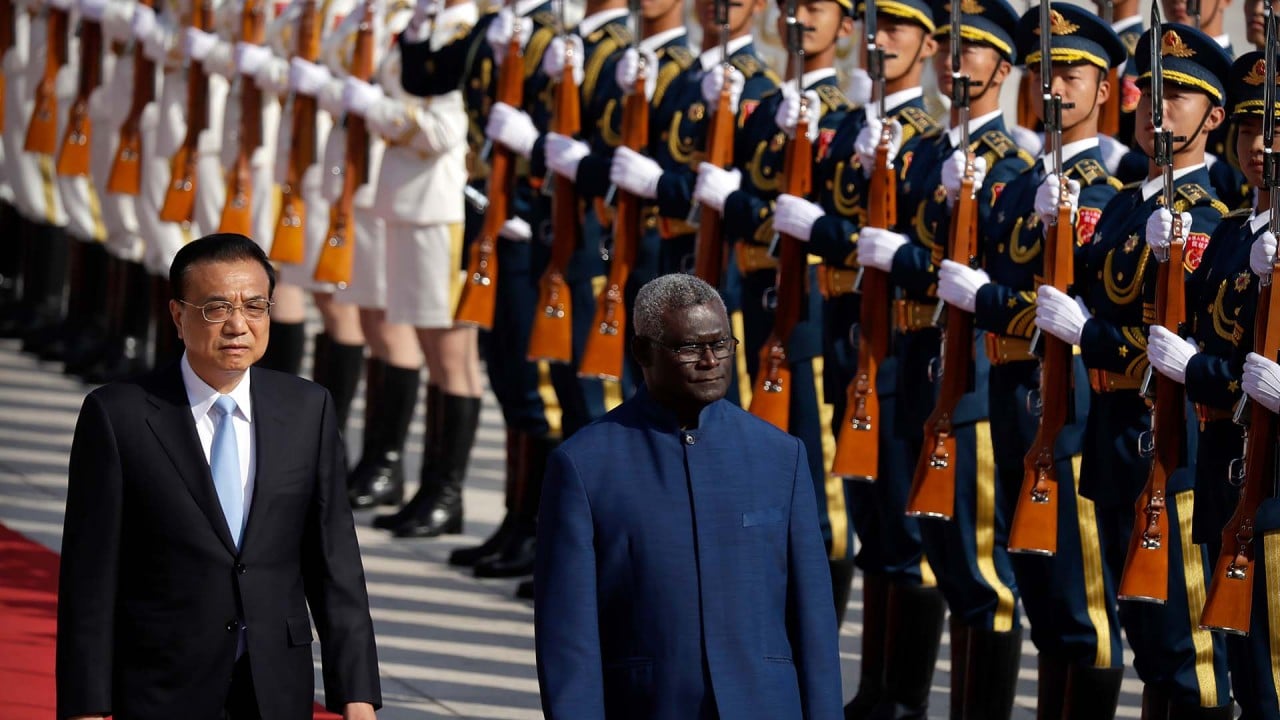Australian Premier Anthony Albanese said it would promote “regional stability” in the Pacific.
Build now, pay later? Debt-ridden Fiji turns to China for port upgrades
Build now, pay later? Debt-ridden Fiji turns to China for port upgrades
But there was a swift political backlash, with opponents concerned the former British colony was yielding too much influence to foreign powers.
Australian Strategic Policy Institute analyst Euan Graham said the backlash had ultimately damaged Canberra’s efforts.
“That’s why it has taken until now, because of the political capital Marape used on the American agreement,” he said.
“He couldn’t do a deal with Australia at the same time.”
Marape and Albanese said earlier this year that they were putting the finishing touches on a major bilateral security treaty.
But that agreement – which they had hoped to sign in June – started unravelling in the closing stages of negotiations.
By July, Marape was voicing concerns that unspecified clauses encroached on his country’s “sovereign rights”.
Thursday’s revised agreement includes more resources for Papua New Guinea’s police, help for the country’s judges, and measures to tackle gender-based violence.
It also covers climate change, cybersecurity and disaster relief.
Perched less than 200km (125 miles) from Australia’s northernmost border, Papua New Guinea is the largest and most populous state in Melanesia.
It is blessed with vast deposits of gas, gold, and minerals – and peers over some of the Pacific region’s busiest shipping lanes.
“Because of its size, population, and geography it’s always going to be a logical anchor point for a Pacific policy,” said Graham.
The United States and ally Australia have been on a diplomatic blitz to shore up their relationships in the South Pacific.
Australia-Tuvalu treaty sparks fears of population drain, threat to sovereignty
Australia-Tuvalu treaty sparks fears of population drain, threat to sovereignty
Marape stressed on Thursday that his country was not picking sides.
“Our major foreign policy remains friends to all and enemies to none. It’s never at the expense of relationships elsewhere.”
China has been on its own Papua New Guinea charm offensive, pouring money into trade, real estate and infrastructure projects.
But Graham said that, so far, it had struggled to convert these links into anything of major military significance.
“China’s economic links to Papua New Guinea’s elite are now very deep, that’s not going to disappear overnight,” he said.
“But in defence terms, the penetration that China has made in Papua New Guinea is fairly shallow.
“They have been casting around for ports and airfield investments, but I think those are still quite speculative.”


